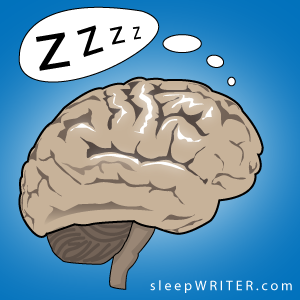
Getting a good night’s sleep is important for all of us. We all know that foggy-headed feeling when we stay up too late or have a night of insomnia. Research shows that good, restorative, nightly sleep is even more important as we get older – as it may be the key to preventing memory issues. (1) (2)
As we sleep, slow brain waves are carried from the brain’s hippocampus, where memories are temporarily stored, to the pre-frontal cortex where they are stored in long-term memory. But as we get older, those slow brain waves harder to come by, as we have trouble falling asleep and staying asleep. Eventually, memories get ‘stuck’ in the short-term memory part of the brain and not stored permanently. So, it is super important to get at least 7-8 hours of sound sleep as we get older to give the brain more time to store memories. (3)
Also, important to note – even a single night of sleep deprivation can cause beta-amyloid, a metabolic waste product, to accumulate in brain structures, including the amygdalae, which regulate mood, emotion, memory, and ability to learn and are implicated in development of Alzheimer’s disease. (4)
Research also shows the importance of getting REM sleep which may help the consolidation of long-term memories. During REM sleep, the brain is active, but the muscles are not. Most skeletal muscles, except those used for eye movements and breathing, are paralyzed during this phase of sleep and it is where the beneficial dream state is experienced. (5)
Interestingly – on the flip side — too much sleep can also have an adverse effect on our memory. This may be in part due to long periods of sleep-disrupting the body clock. (6)
Sleep and Students
When it comes to memory retention, another group radically effected by and prone a lack of good sleep are students. During for example exam time when cramming is the norm in most college dorms, a student needs a minimum of three hours of sleep with the best time being 2 AM and 6 AM. Normal body heat is lowest during the drowsiest time — usually 3 AM and 4 AM — and memory retention is extremely poor. Without enough sleep at the right time, the mind can’t absorb, retain, and remember the information reviewed while studying. The overall consequences of student sleep deprivation can result in lower grade point averages, increased risk of academic failure, compromised learning, and mood disorders. (7)
Is your memory being affected by insomnia?
We are ready to help. TAKE OUR SURVEY HERE
1) https://www.ncbi.nlm.nih.gov/pmc/articles/PMC3768102/
2) https://www.ncbi.nlm.nih.gov/pmc/articles/PMC2656292/
3) https://www.ncbi.nlm.nih.gov/pmc/articles/PMC2824214/
4) https://pubmed.ncbi.nlm.nih.gov/29632177/
5) https://www.sciencedaily.com/releases/2020/06/200605105359.htm
6) https://warwick.ac.uk/newsandevents/pressreleases/little_or_poor/
7) https://www.ncbi.nlm.nih.gov/pmc/articles/PMC4075951/

